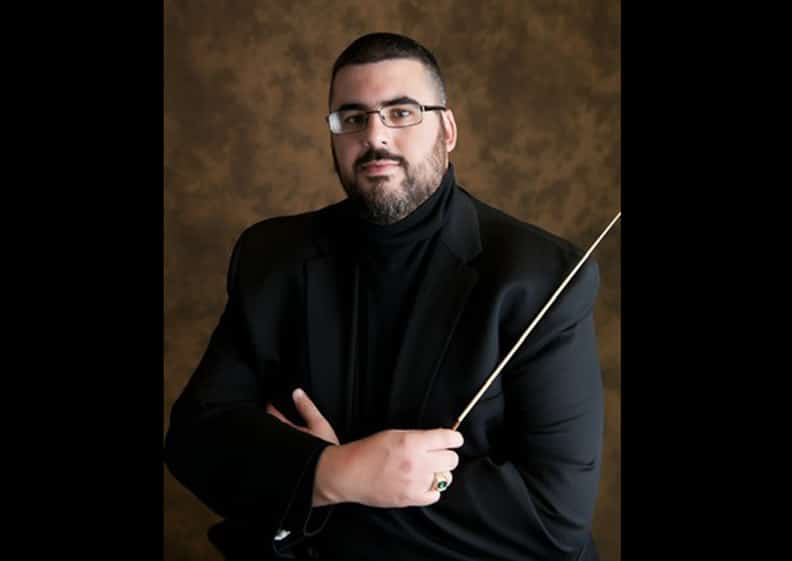BBC changes Young Musician rules
UncategorizedSuzy Klein, Head of BBC Arts and Classical Music TV, has confirmed that the competition will go ahead next year on BBC2, but with a significant change.
Contestants will be selected by region, not instrumental category, in order to create ‘the most accessible, sustainable and democratic competition we’ve staged so far’. Klein continues: ‘Shining a light on different geographical regions allows us to showcase the best young classical talent from across the UK.’
So it could be bassoon vs piano vs pennywhistle in the final.
These are the new selection rules:
– Entry for musicians aged 18 and under (entrants must be born on or after 1 September 2005) is now made by video submission, with a 10 minute video entry scored and ranked by expert judges
– From the initial entry, up to 50 will be progress to live auditions – two from each of eight geographical areas – with a further 34 musicians selected by the judging panel.
– This year, category finals will be replaced by two quarter finals featuring twelve musicians and a Semi Final with six places available. These and the live auditions will make up five 90-minute programmes for broadcast on BBC Four and iPlayer.
– The Grand Final will be broadcast on BBC Two and iPlayer for the first time since 2012 as a special programme with highlights of the concerto performances, whilst the full concert programme will air on BBC Four and iPlayer as well as on BBC Radio 3 and BBC Sounds.






That’s dumb, and I say this as someone who works in EDI.
Listen – Suzi was Oxbridge educated, the works in the Arts, lives in the South and is paid by the BBC. What did you expect?! I can’t believe everyone’s remotely surprised. This sort of meddling is mother’s milk to such minds.
The first “Young Musician of the Year” in 1978 was held regionally! The competition ran for two weeks, each night at prime time on BBC One from the various regions of the UK. Then Semi-Finals in Manchester, accumulating with the Final. The whole country watched but nowadays it’s so diluted, we are lucky to have a couple of programmes.
It was an amazing experience – yet Suzy Klein is only reintroducing its original format.
“Accumulating with “? Presumably you mean “culminating in”…
There’s nothing to indicate that the highlights or full programme will actually be broadcast live, by which I mean in real time and not the pretend-live of tape-delay so often used by BBC tv and radio.
Micheal there is no reason to put children under the extreme pressure of live TV. For most it will their first experience of playing with an orchestra, dealing with emergencies such as broken strings on live TV is not necessary….
Pat, it didn’t do Nicholas Daniels, Benjamin Grosvenor, Tasmin Little, Nicola Benedetti – to name a few – any harm! The music world is a tough world and one needs to be tough to survive and thrive! I think this new format is another way of dumming down and trivialising the seriousness of classical music. It’s very disappointing.
The BBC seems hell bent on employing selective criteria other than pure quality to manipulate outcomes.
It devalues them as an organisation and devalues the meaning of the competition. Furthermore, historically, these attempts at an imposed ‘equality’ are doomed.
Where you drive out nature through the door it will come back in through the window. In the end only quality wins, it just takes longer.
A ridiculous rule change in the name of “accessibility”. So we could have candidates from weaker regions progressing further in the competition, regardless of the relative standard in the other regions. God help the BBC.
I fear the BBC are beyond help.
Quality will out, whether it’s via regions or instrument types, as a quick look at previous winners will show.
You show your ignorance, Norman, by saying “So it could be bassoon vs piano vs pennywhistle in the final.” Apart from the penny whistle – and if they can find a classical penny whistle virtuoso good luck to them – it always good have been. The rounds were by instrument category until this year, so were designed to pit a bassoonist against a pianist against a violinist against a trumpeter in the final.
How will they define the region for contestants who attend a boarding school that is not in the same region as the home address of their parent(s)/guardian(s)? (Many of the contestants in later rounds receive their full-time education at one of the specialist music schools as boarders, so it is a relevant question. Of those who do not, many attend a junior conservatoire on Saturdays, sometimes travelling significant distances to do so.) Regardless of the answer, I can imagine that some particularly ambitious parents/guardians may engage in tactical changes of home address or school or boarding status…
Indeed, SVM. I foresee the drowned bodies of Chetham’s students washing up on the shores of Ulster as a result of their parents/guardians paying people-smugglers to transport them across the water so as to be eligible for the North of Ireland heat.
Very funny, but a more subtle tactic may be for a parent/guardian to renounce (on paper) guardianship in favour of a friend or relative in another region (preferably, one who is not too wealthy, in order to qualify for more Music & Dance scheme funding). If the child is at a boarding-school, such a change would be feasible to pull-off in practice (especially if the stratagem is needed only for a few months), and rather difficult to disprove. Parents have been known to pull such tricks to get their children into a desirable school catchment area (I remember reading one report of a local council who employs someone to make home visits to ascertain whether applicants for state school places have been entirely honest about the child’s home address). And in the USA, some parents have even gone so far as to declare a child “estranged” a couple of years before reaching the age of majority (and have the child move home to live with a friend or relative who is less affluent), in order for him/her to qualify for more financial support for university tuition fees. Of course, I hasten to add that living arrangements for children can change “for real” in such ways for a variety of perfectly valid reasons that have only a genuinely incidental side-effect of affording potential advantages along the lines described above. And it could well be argued that, so long as all parties comply with the letter of the law, a change in living arrangements can be legitimately motivated by a desire to “game the system” (certainly, this is what affluent parents who move home to be in the ‘right’ catchment area would say).
Is this an example of levelling up?
Mmm. Not sure what to make of this. I am aware that more people live in Greater London, Gtr Manchester and the Midlands and I may be wrong but recently, I did some figures on National Youth Orchestra GB 2024 members, and judging by the smaller number of musicians from the English northern regions, Scotland, Wales & NI in comparison with GtrL, GtrM, and the Midlands, members from the latter areas vastly outnumbered those from the rest of the UK combined. The ‘rest UK’ may not have made the grade because of lack of exposure to classical music and opportunity to access classical instruments and the best tuition, particularly true in the NE, unless you’re in Newcastle-Gateshead. I know also that not all the shortlisted contestants in YM over the years have played in the NYOGB, so it’s not necessarily the best comparison. But the regional numbers did seem lop-sided
I wonder how many of the currently disadvantaged will have access to, or skills for making, video submissions?
Certainly, one effect will be that some of the otherwise best/better musicians from GtrL, GtrM, and the Midlands may now be disadvantaged and squeezed out.
The situation is “broke” but can only be fixed for the future. Tinkering with the format now will not fix it. Selection should be based on quality. It will take time for other regions to ‘catch up’ and provide similar numbers of quality candidates to compete on an equal basis. Both the NYOGB and National Children’s Orchestras of GB are trying to expose more children to opportunities regionally, and there is some progress with the various regional music services, though they are poorly funded.
One example is a record number of 70 Schools in the Teesside area engaging with the ROH’s education programme, who’ve recently had their “Magic Flute” singing/acting experience (shown on BBC Look North – NE & Cumbria), and members of the ROH Orchestra will be engaging with the Schools next year and hopefully encouraging more kids to take up classical instruments. Congratulations to Teesside Music Service for achieving this link.
In the meantime, Suzy Klein should have left well alone.
How ridiculous…. Searching for highly accomplished young musicians and then excluding them because they happen to live in the same region as other highly accomplished young musicians. Can’t dumb down and seek extraordinary talent at the same time.
I’m not sure if they are still published, but I once saw some statistics for the number of initial audition entrants in each instrumental category for a past edition of BBC YM. There were way fewer percussionists than string or wind players and yet they got their own category semifinals each time. The shift back to regional selection may at least address this, and hopefully, we will have a final with the best young instrumentalists regardless of instrument.
The criterion should be that entrants should NOT be capable of playing their instrument (or region, in the new version). Only then can equality be achieved!
Is there a special category to reward musicians from state schools. Most finalists & winners seem to be from private music schools
I would argue that “state schools” are not a very reliable proxy for measuring privilege or lack thereof in the context of the best young musicians (admittedly, such a proxy measurement may have some relevance for a child of moderate but not outstanding musical ability). Many of the most musically accomplished children attending state schools receive an élite musical education through an outstanding (and probably expensive) private teacher and/or a junior conservatoire (whether by virtue of deep pockets in the family or bursary provision). And many children attending specialist music schools or private schools with significant musical provision on a full-time basis are beneficiaries of bursaries that cover the fees in whole or in part.
The last winner Jordan Ashman attended state schools
Wokeism rules. What a shame. Musical excellelence gives way to political correctness.
Excellence.
At least this change means there will not necessarily be a drummer (sorry, percussionist) in the final any more. Percussionists have, according to the judges anyway, won the last two competitions. Good example of the current trend that tries to make us all embarrassed about true talent, and promote something slightly inferior.
I propose you get on stage and attempt to do what those young percussionists do. I’ll tell you what really makes us all embarrassed: Your arrogance and your ignorance.
Did you actually watch the percussion final? They are no way inferior to other categories.
Ha ha, Norman Lebrecht’s comment has perfectly demonstrated exactly why there needs to be this change. Unconscious bias will always operate against young musicians across all regions getting a fair hearing. Us poor Northerners can only play penny whistles, while wearing flat caps and racing whippets! Well done Suzy Klein – great idea!
Michael Hext: Bedford
Nick Daniel: Salisbury
Anna Markland: Merseyside
Emma Johnson: Barnet
David Pyatt: Watford
Freddy Kempf: Canterbury
Natalie Clein: Poole
Guy Johnston: Harpenden
Nicola Benedetti : North Ayrshire
Mark Simpson : Liverpool
Pete Moore: Stalybridge
Lara Melda: London
Laura van der Heijden : West Sussex
Sheku Kanneh-Mason: Nottingham
Lauren Zhang: USA/Birmingham
Jordan Ashman: Bury St Edmonds
Doesn’t sound like the competition has a particularly problematic geography issue!
The North – the country’s famous whine producing region.
I grew up with this nonsense. The facts are never allowed to get in the way.
Typical dumbing down by the idiots than run BBC.
Maybe audio submission would be a better leveller than video? After all, orchestras (some?many?all?) recruit using blind auditions.
Blind auditions were a huge success in north america getting asians a foot in the door. However when the flawed experiment that initially gave rise to blind auditions was repeated with better methodology, it indicated that blind auditions were only beneficial for women in the first round. If the screen came down, women in subsequent and final rounds had an advantage over other candidates. The obvious conclusion here, (the recently praised all woman negotiating committee in Cleveland is a fine example) is that the screen is not to prevent bias, it is so that women can prevent other more attractive female competition from being hired. Give an inch, take a mile. Stay safe out there everyone!
The problem is that it would then be much easier for an entrant to cheat and submit a sound recording of someone else’s performance. With a video submission, that kind of fraud would be much, much harder to accomplish (especially if imposing a requirement for one continuous take that includes the entrant showing his/her face alongside photographic ID at the beginning or end). One solution, if we are to regard such matters as posture and stage deportment as irrelevant, could be for the competition administrator to authenticate the entrant via the video submission, then compile a separate version without video for the judges.
Bagpipes vs alto clarinet vs viola.
Where’s the Tylenol?
Excellent idea.
In my opinion, BBC Young Musician is a scam! Nobody knows how many contestants applied, who the judges are, the name of the kids who got through to the next round.
It is all opaque and covers up the unfairness of the project.